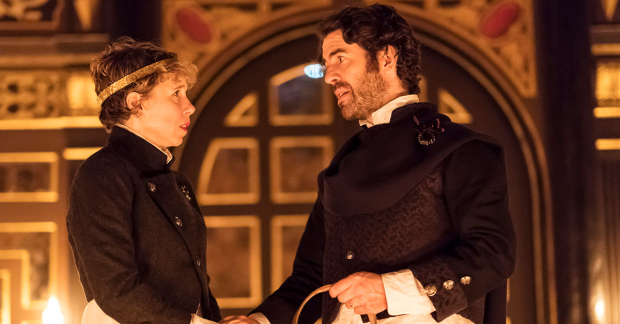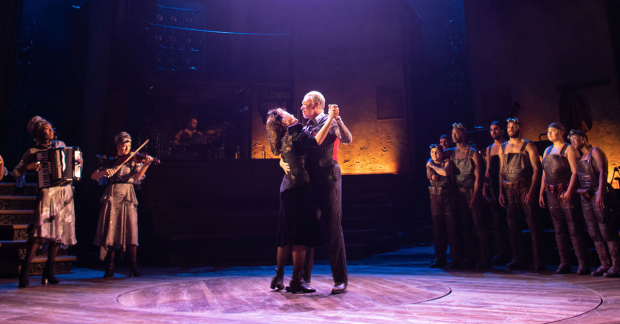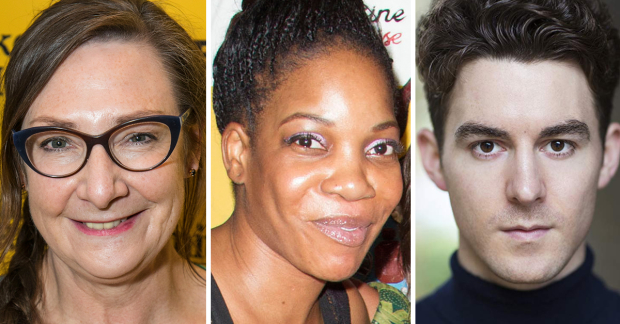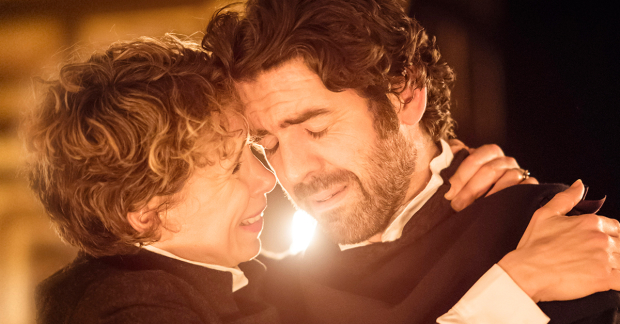Review: Macbeth (Sam Wanamaker Playhouse)

© Johan Persson
It must be fun being a fly on the wall at the breakfast table of Paul Ready and Michelle Terry, the husband and wife now appearing at the theatre where Terry is artistic director as that murderous double act The Macbeths.
Certainly, their chemistry electrifies the early scenes as they discuss the murder of a king with exactly the bickering complicity they might exhibit when arguing about renewing the house insurance or who is picking up the children after the school run. Their scenes together have an easy dynamic which makes them entirely believable as a married couple; the moment when he puts his hand out and says 'We will go no further in this business' is the gesture of a husband who has always been the compliant partner trying to assert himself. Her quiet determination that they will proceed springs from a loving wife's knowledge of his ambition to be king.
Quietness and love are the two threads that run through Robert Hastie's production of this difficult play, easily the best of the three versions of it that I have seen this year partly because it has a directness and a willingness to trust the text that make it immediately accessible.
Terry is very, very good indeed as Lady Macbeth, charting her decline from warm, clever woman to a broken wreck with forensic detail and deep emotion. The moment when she looks aghast at Macbeth in the banqueting scene, as if learning new things about who he is, feels like a revelation; her scream of torment at the close of the sleep walking scene, cuts to the quick.
Ready can't quite match her. He has a quicksilver lightness, and speaks Macbeth's lines with great clarity, but by the close he seems petulant and tired rather than broken and tragic. He never gives you a reason to care about Macbeth; his fall seems inevitable. You don't get a sense of a soul in torment.
But around him Hastie provides many moments of insight. The production, designed with a stylish neutrality by Peter McKintosh, makes intelligent use of the candle-lit Sam Wanamaker Theatre space, allowing the shadows of the play to fall heavily across the action.
The treatment of the witches is particularly effective. At the beginning, the cast emerge from almost total darkness, accompanied by a chanting in Enochian – the language that the 16th century occult philosopher John Dee ascribed to angels. They pull straws to determine who will play the weird sisters; on the night I saw the show, Terry was one of those chosen, which created all kinds of strange resonances.
But you never really see the witches. They surround Macbeth like shapes and sounds. When he visits them late in the play and is given the famous false promises that encourage him to his doom, the scene is lit by a single flame on his face and the great glittering doors at the back of the stage swing open to indicate movement.
This suggestiveness is much more powerful than an explicit show and tell, making them a part of life, a part of the imagination in ways that respond to the beliefs of Shakespeare's time but are also palatable in the modern age. It's typical of the care with which the production approaches things. Hastie's direction also makes time to turn Fleance into a stroppy teenager instead of a cipher and to insist on the full horror of the scene where Lady MacDuff and her children are murdered.
Elsewhere, Philip Cumbus is a wonderfully noble, well spoken Banquo, and Joseph Marcell a terrifically florid and slightly embarrassing Duncan, though the doubling that requires him to appear immediately after he has supposedly been murdered as a foul-mouthed Porter is a rare misstep in an impressively thoughtful production.
















